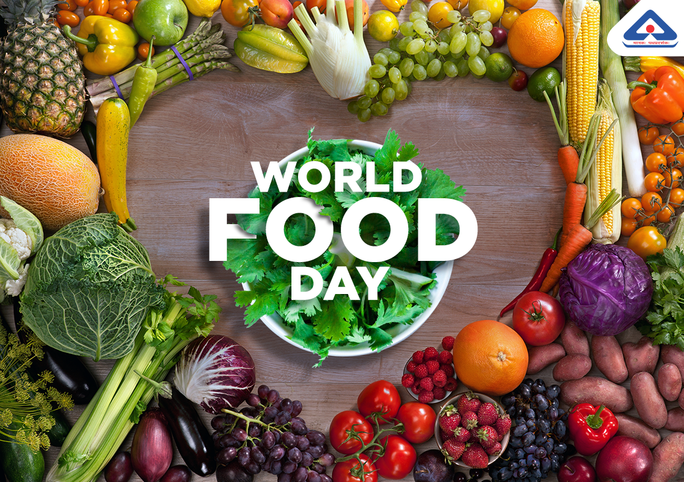Championing Food Safety, Planet Protection, and Economic Stability on World Food Day

World Food Day, celebrated annually on October 16th, is a global call to action aimed at addressing food security, sustainability, and economic stability. This year’s theme resonates even more profoundly as nations, industries, and communities come together to highlight the essential role that food safety plays in building a resilient world. In the U.A.E., these efforts are especially significant as the country strives to balance economic growth with sustainability goals, maintaining a heavy focus on sustainability, including the role of plastics in food security and environmental protection.
The U.A.E.’s Commitment to Food Safety and Sustainability
The U.A.E. has been a regional leader in addressing food safety and sustainability. With a unique climate that poses challenges for agriculture, the nation has invested heavily in technological advancements such as hydroponics, vertical farming, and smart irrigation systems to ensure a stable food supply. These innovations are not only increasing food production but also doing so in a way that minimizes environmental impacts.
Plastic, often seen as a culprit in environmental degradation, is being reimagined in the U.A.E. as a key player in building a sustainable future. Through a circular economy approach, the country is exploring ways to make plastics part of the solution, rather than the problem. Initiatives aimed at improving recycling rates and using biodegradable or recyclable plastic in food packaging are reducing waste while ensuring food safety and longevity.
Plastic and Food Safety: A Vital Connection
Plastic plays an essential role in modern food safety. It ensures food remains fresh, prevents contamination, and reduces food waste by extending shelf life. In the U.A.E., where the hot climate can accelerate food spoilage, plastic packaging is vital for ensuring food remains safe from production to consumption. However, concerns around plastic waste have led to innovative approaches that both maintain these food safety benefits and minimize environmental harm.
At COP29, the discussion around plastics will be framed in a new light, focusing on how sustainable plastic use can contribute to broader climate goals. The circular economy, which aims to keep resources in use for as long as possible, will be a central topic. This approach to plastic management, including recycling and the use of biodegradable materials, is aligned with the U.A.E.’s broader sustainability goals.
The Role of Technology in Sustainable Food Practices
The U.A.E.’s investment in technology goes beyond agriculture. The nation has also embraced advanced recycling technologies to tackle plastic waste more effectively. For example, initiatives such as the “Plastic Circular Economy” program, which focuses on maximizing the lifespan of plastic materials through recycling and reuse, are positioning plastic as part of a sustainable solution. In food packaging, innovations like biodegradable plastics and recyclable materials are being implemented to maintain food safety while reducing the environmental footprint.
These advancements align with global food safety initiatives, which emphasize the need for materials that ensure food remains uncontaminated, even as we reduce our reliance on single-use plastics. By prioritizing food safety and sustainable packaging, the U.A.E. is setting an example for how nations can protect both their people and the planet.
Protecting the Planet through Sustainable Practices
Food safety and environmental protection are inextricably linked. Climate change, unsustainable farming practices, and excessive food waste all pose threats to global food systems. This World Food Day, the U.A.E. is reaffirming its commitment to protecting the planet through initiatives that champion sustainable agricultural practices, water conservation, and waste reduction.
The Emirates Food Security Council has implemented a range of strategies to enhance food resilience while reducing environmental harm. These include promoting climate-smart agriculture and supporting research into innovative farming techniques that conserve water and reduce carbon emissions. The Council’s efforts are in line with COP29’s focus on sustainability, where discussions will include strategies for reducing the environmental impact of the global food supply chain.
Economic Stability through Sustainable Food Systems
A sustainable food system is essential for economic stability. In the U.A.E., the agriculture and food industries contribute significantly to the economy. By adopting sustainable practices, such as reducing food waste and embracing technologies that increase crop yields while minimizing resource use, the nation is securing its economic future.
The U.A.E.’s National Food Security Strategy 2051 aims to position the country as a global hub for innovation-driven food safety, with an emphasis on sustainable production methods and a reduction in food imports. Through these efforts, the U.A.E. is creating a model for how countries can balance economic growth with environmental stewardship.
Additionally, sustainable plastic use in the food industry can contribute to economic stability. By investing in the circular economy, industries can reduce costs associated with raw materials and waste management, while also creating new job opportunities in recycling and waste management sectors. COP29 will likely explore these economic benefits as part of the broader conversation on sustainable materials.
COP29 and the Future of Sustainable Food Systems
The U.A.E. is setting a positive example of how nations can champion food safety, protect the planet, and support economic stability through sustainable practices. By rethinking the role of plastics, investing in food safety technologies, and embracing the principles of the circular economy, the U.A.E. is helping to build a resilient and sustainable food system for the future. As the global community gathers for COP29, the discussions on sustainability will continue to shape the way we approach these critical issues, ensuring a healthier, safer, and more prosperous world for all.
